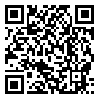Sun, Feb 1, 2026
[Archive]
Volume 6, Issue 2 (6-2014)
IJDO 2014, 6(2): 56-66 |
Back to browse issues page
Download citation:
BibTeX | RIS | EndNote | Medlars | ProCite | Reference Manager | RefWorks
Send citation to:



BibTeX | RIS | EndNote | Medlars | ProCite | Reference Manager | RefWorks
Send citation to:
Rezaee K, Haddadnia J. Intelligent and Online Evaluation of Diabetes using Wireless Sensor Networks and Support Vector Machines Algorithm. IJDO 2014; 6 (2) :56-66
URL: http://ijdo.ssu.ac.ir/article-1-188-en.html
URL: http://ijdo.ssu.ac.ir/article-1-188-en.html
Biomedical Engineering Group, Department of Electrical and Computer Engineering, Hakim Sabzevari University of Sabzevar, Sabzevar, Iran.
Abstract: (4843 Views)
Objective: International Diabetes Organization estimates that there are 285 million people worldwide who suffer from diabetes, and this figure is expected to increase to 450 million in next 20 years. According to statistics issued by the World Health Organization, diabetes is considered among ten leading causes of death in world and its prevalence in the population is growing.This paper deals with designing and building an Expert System for Diabetes Mellitus diagnosis.
Materials and Methods: We randomly select 78 knowingly volunteered patients as non-intervention from approximately 17 families in Tovhid town in Sabzevar city to test system hardware. The output of these information and ADA database was used to test the performance of software part of the proposed system. In this system, at first citizen information through a wireless sensor network (WSN) is received and these data is transmitted to the central data processing system (CDPS). In the CDPS, intelligent software uses SVM technique based on 8 features to classify data and warns diabetes person due statistical changes.
Results: Acceptable level of accuracy of the proposed system with 95.02%±1.245%, sensitivity 98.30±0.85% and specificity of 97.52±1.06% and Kappa coefficient equal to 0.95 is optimal performance
Conclusion: Accuracy and high speed in data classification make the exact output of the software which is available online information so specialist will be able to alert suspect patients or identity diabetes patients without referring them to therapeutic centers.
Keywords: Diabetes, Support vector machine, Online diabetic data (ODD), Wireless sensor network, Central Data processing system.
Type of Study: Research |
Subject:
Special
Received: 2015/02/22 | Accepted: 2015/02/22 | Published: 2015/02/22
Received: 2015/02/22 | Accepted: 2015/02/22 | Published: 2015/02/22
| Rights and permissions | |
 |
This work is licensed under a Creative Commons Attribution-NonCommercial 4.0 International License. |





